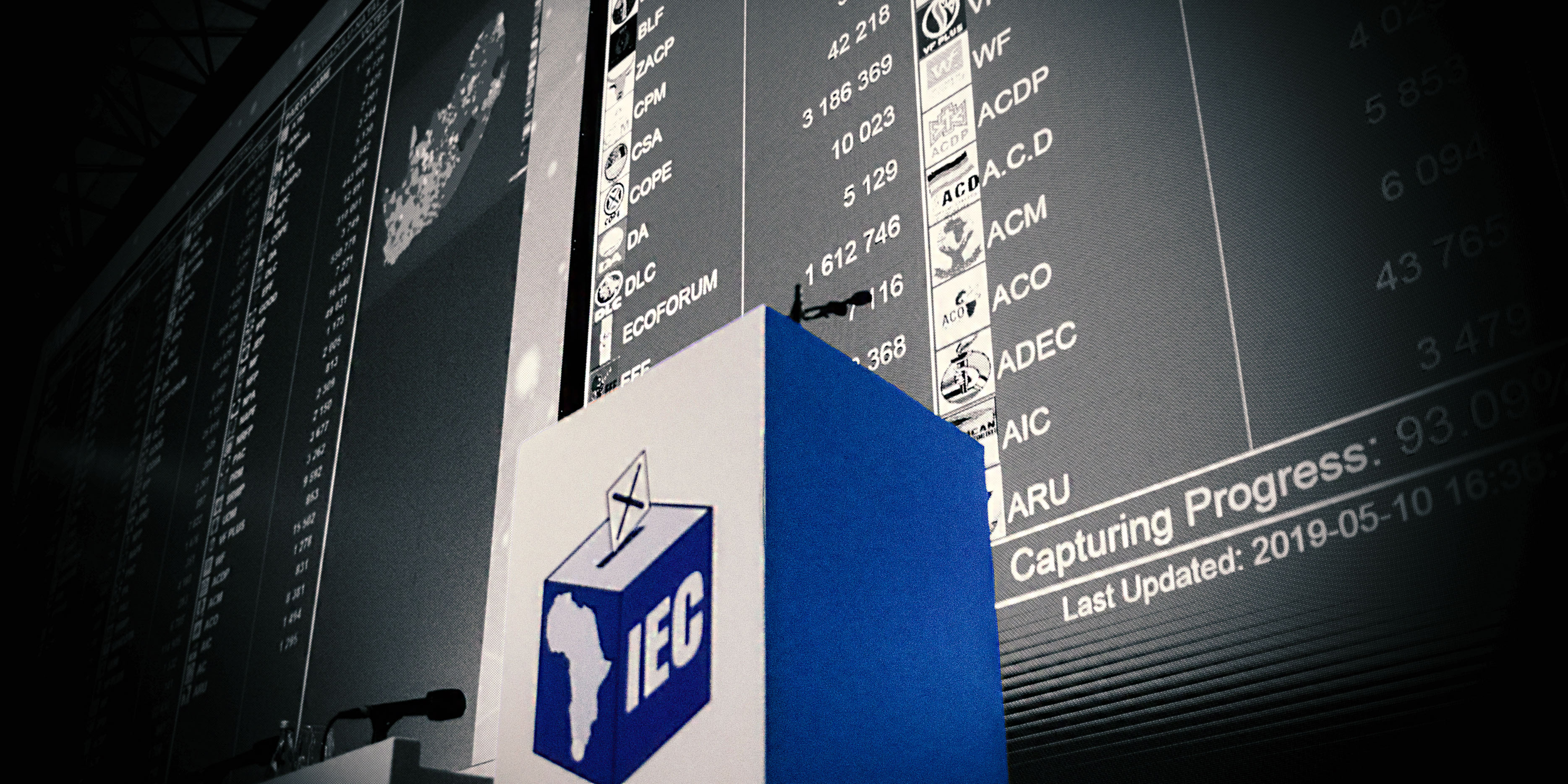Electoral reform suffered a major setback when the old guard ANC/Electoral Commission of South Africa majority on the official review panel rejected public representations and expert reports criticising the current proportional representation party list system for blocking accountability.
“I’m disappointed but not surprised,” said Wayne Duvenhage, CEO of the Organisation Undoing Tax Abuse (Outa), one of dozens of civil society groups that made representations calling for some form of constituency-based system. “They’re putting ANC interests ahead of anything else.”
Divisions between the loyalists and their fellow panellists over the reports’ recommendations became so explosive that two competing reports were sent to Home Affairs Minister Leon Schreiber, and each side criticised the other over the process.
The so-called original, or minority, report “strongly recommended” a constituency-based system – either 200 constituency seats and 200 proportional, or 300 constituency and 100 proportional – based on extensive feedback and expert advice.
The 200-seat version would provide for single-member constituencies, while the 300-seat version would provide for multimember constituencies of between four and 10 MPs each.
Constituency-based elections were endorsed by almost all political parties, as well as business, traditional leaders, some unions and most expert researchers and NGOs.
A number of parliamentary and judicial commissions from 2002 to 2020 have complained that parliamentary oversight is weak and ineffective under the current proportional representation party list system. Each has urged some form of constituency-based way to elect MPs.
Many expert representations argued that South Africa’s biggest setbacks since 1994, including the Arms Deal, the Aids crisis and State Capture, would have been stopped more quickly if MPs were elected by local communities, giving them a more direct relationship with their MPs.
They also argued that the current system puts power in the hands of the political parties and results in a lower calibre of parliamentarian, because they are afraid to investigate the actions of their party leaders in the executive.
The minority report was supported by four panellists, but five panellists submitted an alternative report which offered a range of alternatives including the status quo and offered no recommendation. One of the signatories, who did not want his name used, said in an interview that the decision not to make a recommendation was deliberate, because the panel’s job was simply technical, to lay out the possible options without making a choice.
But the report of this group quotes section 23 of the Electoral Amendment Act of 2023, saying the panel’s functions included “to independently investigate, consult on, report on and make recommendations in respect of potential reforms of the electoral system for the election of the National Assembly and the election of the provincial legislatures”.
This report suggested that the current proportional representation system served as well as others and praised its proportionate representation.
The five-panellist majority who refused to make a recommendation were Dr Michael Sutcliffe of the ANC and four executives associated with the IEC with ANC links. They are Phatudi Simon Mamabolo, Michael Andre Hendrickse, advocate Faith Pansy Dikeledi Tlakula and Norman du Plessis.
In a letter to the minister the majority claim that the researcher and respected political scientist, Professor Mcebisi Ndletyana, sent the panel reports that “were not written neutrally, but instead [were] biased towards supporting a particular electoral option”.
“The reality was that the researcher held veto powers over panel members,” the five panellists wrote in a letter to the minister on 22 September.
Asked to comment on these remarks, Ndletyana said that “my only responsibility was to provide a factually grounded research report based on the chairperson’s instructions and with the agreement of the other panellists”.
The majority report argued that there is now less need for a more accountable system because “the increasing use of social media for political communication introduces new ways for voters to interact with representatives and can mean that geographic distance is less important for contacting representatives than it was decades ago”.
They also suggest that stronger methods of monitoring MPs could do the job.
The minority report proposing a constituency-based system was signed by the panel chairperson, advocate Richard Sizani, who is a former head of the Public Service Commission, as well as Mmatsie Mooki, Tomsie Dlamini and Dr Albertus Schoeman.
The ANC submission stood out from other party representations in arguing that multimember constituencies would “not bring real accountability”. In recent comments, ANC secretary-general Fikile Mbalula said the current system “has served South Africa well”.
History of recommendations
In 2002, the Van Zyl Slabbert Commission recommended a constituency-based system. In 2006, a parliamentary commission under former ANC MP Pregs Govender argued that a lack of “strong, independent MPs providing oversight integrity was called into question in the context of significant political events in the early 2000s”.
“This included a lack of executive action to respond to the HIV/Aids crisis, Parliament’s handling of the Arms Deal, and the dissolution of the Directorate of Special Operations (known as the Scorpions). This led to public criticism portraying Parliament as a rubber stamp of the Executive and/or the ruling political party.”
In 2017, a high-level assessment led by former president Kgalema Motlanthe recommended “that Parliament should amend the Electoral Act to provide for an electoral system that makes members of Parliament accountable to defined constituencies on a proportional representation and constituency system for national elections.”
In 2018, the Zondo Commission criticised Parliament for failing to hold the executive accountable for State Capture, and “recommended that Parliament should consider introducing a constituency-based (but still proportionally representative) electoral system” to “enhance the capacity of members of Parliament to hold the Executive accountable”.
Read more: Parliamentary oversight doesn’t seem to work — Zondo scrutinises election system
The decision to set up this latest panel resulted from a dispute arising in 2020 out of the failure to implement some recommendations of a Ministerial Advisory Committee on Electoral System Reform, led by former constitutional development minister Valli Moosa.
This committee suggested two options to address concerns raised by the Constitutional Court. When the majority in Parliament proposed to enable independent candidates to run for Parliament, but did not address the need for a constituency system, stakeholders threatened a lawsuit.
This could have derailed the timetable for the 2024 elections. They agreed not to litigate if this electoral reform panel was set up to address their concerns.
Middle ground
In its final report, the minority referred to international trends, finding that “the tendency of electoral reforms has been to converge on the middle ground with party-centred systems becoming somewhat more candidate-centred, while candidate-centred systems have become more party-centred”.
They argued that South Africa’s current system is an “outlier” compared with proportional representation systems in other countries, because South Africa’s constituencies are much larger than others, covering entire provinces.
“Where representatives have a weak link with their constituents, there are limited incentives for representatives to respond to the interests of voters,” the report argued. “The extent to which voters can monitor the performance of their representatives and ultimately reward or sanction them for their actions is key in shaping incentives for the behaviour of individual representatives.
“Representatives have stronger incentives to act in the interests of voters where they are more reliant on their constituents for re-election, such as in open-list systems or where smaller constituencies are used. Accordingly, such representatives spend more time serving their constituents.
Read more: Political paralysis — SA’s best bet may be to muddle through the middle ground
“In closed-list PR systems, by comparison, representatives are more reliant on party leadership for re-election and can be protected from electoral punishment by voters. The use of large, closed lists reduces the electoral vulnerability of individuals.
“Placement in top positions in party lists mitigates against electoral punishment by voters so that poorly performing representatives close to party leaders can still be elected even if the party as a whole loses electoral ground.
“On the question of accountability to voters, the current system performs the weakest and presents limited advantages that the other options considered do not offer to the same degree or greater. In several ways, our current electoral system is an outlier compared to similar systems used internationally. This includes using the largest constituencies and largest compensatory tier among equivalent proportional representation systems – the combination of which is unnecessary for achieving objectives of inclusion and proportionality.”
Duvenhage, the Outa CEO, reacted to the decision by saying “the people who keep the status quo do not have the interests of the country at heart. They’re putting the ANC before the country.
“We need political will to make reforms that are meaningful.
“We need to force government to reform the system so people know who they are voting for. Until we do that there will be no accountability, continuing lack of effective oversight and good conduct in national government.”
Minister Schreiber has tabled both reports in Parliament. It will now be up to the Portfolio Committee on Home Affairs to hold hearings to consider whether to introduce legislation. DM
John Matisonn is a South African who held senior positions in electoral administration in the United Nations, including acting head of the UN Election project in Afghanistan.





 Illustrative image | Electronic screens display the current national vote count results at the Independent Electoral Commission national results centre in Pretoria, South Africa, 10 May 2019. (Photo: Waldo Swiegers / Bloomberg via Getty Images)
Illustrative image | Electronic screens display the current national vote count results at the Independent Electoral Commission national results centre in Pretoria, South Africa, 10 May 2019. (Photo: Waldo Swiegers / Bloomberg via Getty Images)